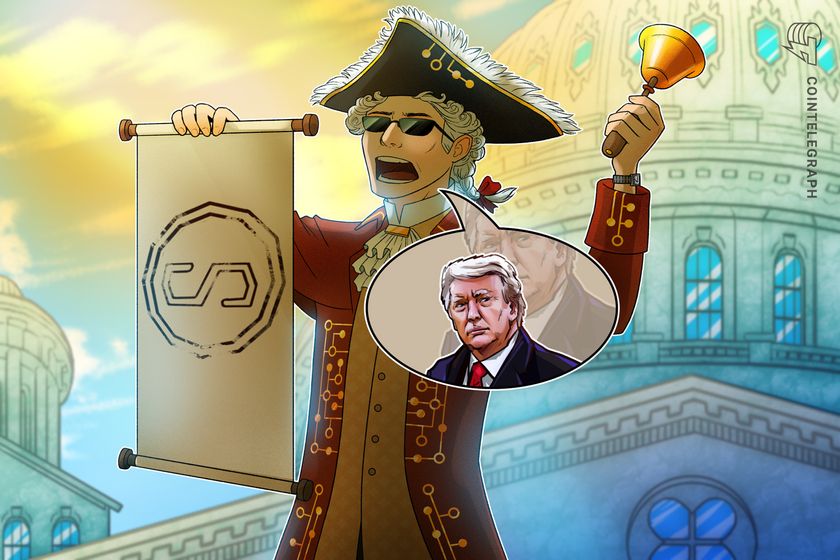
In a recent development in the US Senate, a bill aimed at regulating payment stablecoins has stirred controversy surrounding President Donald Trump's ties to the cryptocurrency industry. Despite a majority of Senate members supporting the bill, high-ranking Democrats, including Senate Minority Leader Chuck Schumer, and Senators Elizabeth Warren and Jeff Merkley, are planning to propose an amendment to the legislation to address concerns about the President's involvement in the crypto space.
The bill in question, known as the Guiding and Establishing National Innovation for US Stablecoins Act, or GENIUS Act, faced a procedural vote on May 8, which it failed. However, on May 20, with the support of 18 Democrats who sided with Republicans, the bill advanced in the Senate. The proposed amendment by Schumer, Warren, and Merkley aims to prevent a sitting US president from profiting from stablecoins, particularly in light of President Trump and his three sons' involvement in the crypto platform World Liberty Financial (WLFI).
WLFI launched its USD1 stablecoin in March, and critics have raised concerns that legislation recognizing stablecoins like USD1 as financial instruments could potentially benefit the President personally. Furthermore, an Abu Dhabi-based investment firm's plan to use USD1 for a $2 billion investment in Binance has raised questions about potential conflicts of interest and profiting from transaction fees for the President's family.
In addition to the stablecoin controversy, Democrats are also addressing Trump's hosting of a dinner at his golf club for individuals who purchased significant amounts of his personal memecoin. The event, which drew criticism for its lack of transparency and potential for favoritism, prompted calls for Trump to release the guest list by Warren, Merkley, Senator Chris Murphy, and consumer advocacy groups.
The concerns raised by Democrats highlight broader ethical issues surrounding conflicts of interest and potential corruption in the cryptocurrency industry. As the regulatory landscape for stablecoins and digital assets continues to evolve, the need for transparency and accountability in political figures' involvement in the sector becomes increasingly important.
Cointelegraph's attempts to reach the White House for comment on these matters had not been successful at the time of publication. The ongoing debate underscores the intersection of politics and cryptocurrency, shedding light on the complexities and challenges of regulating this rapidly growing industry.

Leave a Reply